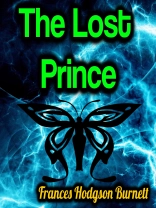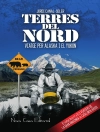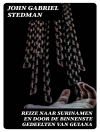The Lost Prince Frances Hodgson Burnett — This book is about Marco Loristan, his father, and his friend, a street urchin called ‘The Rat’. Marco’s father, Stefan, is a Samavian patriot working to overthrow the cruel dictatorship in the kingdom of Samavia. Marco and his father come to London where Marco strikes up a friendship with a crippled street urchin known as The Rat. The friendship occurs when Marco overhears The Rat shouting in military form. Marco discovers he had stumbled upon a club known as the Squad, where the boys drill under the leadership of The Rat, whose education and imagination far exceeds their own.Stefan, realizing that two boys are less likely to be noticed, entrusts them with a secret mission to travel across Europe giving the secret sign: ‘The Lamp is lighted.’ Marco is to go as the Bearer of the Sign while The Rat goes as his Aide-de-Camp (so-named at his own request).This brings about a revolution which succeeds in overthrowing the old regime and re-establishing the rightful king. When Marco and The Rat return to London, Stefan has already left for Samavia. They wait there with his father’s faithful bodyguard, Lazarus, until Stefan calls. The book ends in a climactic scene as Marco realizes his father is the descendant of Ivor Fedorovitch and thus the rightful king of Samavia.
Об авторе
Frances Eliza Hodgson was the daughter of ironmonger Edwin Hodgson, who died three years after her birth, and his wife Eliza Boond. She was educated at The Select Seminary for Young Ladies and Gentleman until the age of fifteen, at which point the family ironmongery, then being run by her mother, failed, and the family emigrated to Knoxville, Tennessee. Here Hodgson began to write, in order to supplement the family income, assuming full responsibility for the family upon the death of her mother, in 1870. In 1872 she married Dr. Swan Burnett, with whom she had two sons, Lionel and Vivian. The marriage was dissolved in 1898. In 1900 Burnett married actor Stephen Townsend until 1902 when they got divorced. Following her great success as a novelist, playwright, and children’s author, Burnett maintained homes in both England and America, traveling back and forth quite frequently. She died in her Long Island, New York home, in 1924.Primarily remembered today for her trio of classic children’s novels — Little Lord Fauntleroy (1886), A Little Princess (1905), and The Secret Garden (1911) — Burnett was also a popular adult novelist, in her own day, publishing romantic stories such as The Making of a Marchioness (1901) for older readers.












